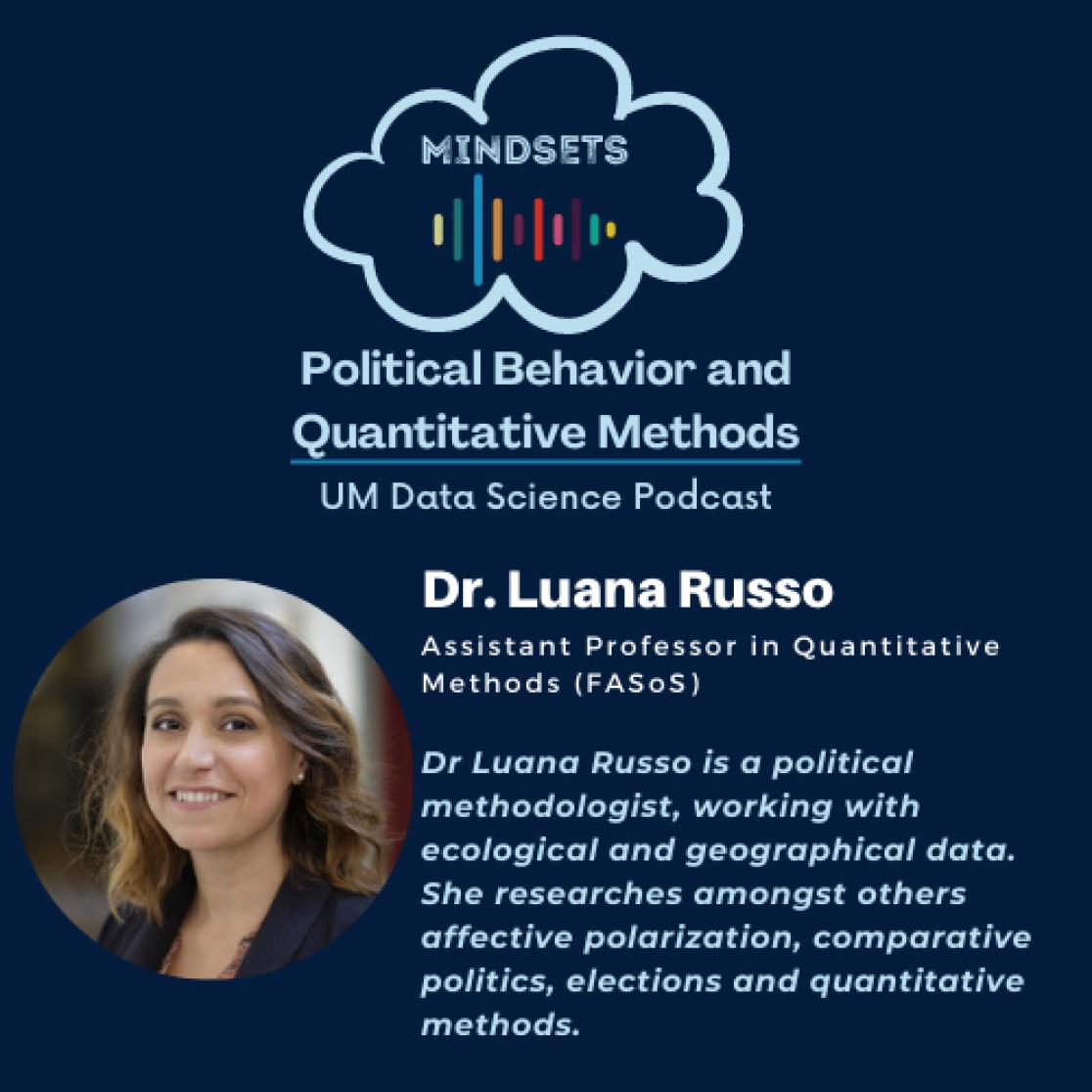Episode 2: Political Behavior and Quantitative Methods
In this new DSMINDSETS podcast episode, we invited Dr. Luana Russo, an Assistant Professor in Quantitative Methods from the Faculty of Arts and Social Sciences.
Luana Russo is a political methodologist with a large experience in working with ecological and geographical data. Her research interests are in affective polarisation, comparative politics, elections, electoral geography and quantitative methods. She is currently an associate director of Bachelor European Study, a co-editor in chief of the Journal Politics of the Low Countries, a Chair of the steering committee of the ECPR for Political Research Standing Group on Political Methodology, and a board member of FEM (Female Empowerment Maastricht).

Areas of research focus
- Political and electoral behavior and quantitative methods. Dr. Russo is motivated by her perspective that elections are the foundation of democracy.
- Dr. Russo shared how the data is collected, analyzed, interpreted, and presented at the end in the research of political sciences.
- Further reading on quantifying political and electoral behavior: The 2019 European Elections: Something old, something new, something borrowed, and something green.
- Affective polarization, defined as the extent to which you dislike or feel more negatively towards a party that you don't like, or the supporters of that party that you don't like.
- She elaborated how affective polarization would affect our lives and society. For example, if or how much people would accept relationships or friendships with people who are from the opposing party.
-
Further reading on affective polarization: Divide and Conquer: Disentangling Negative Partisanship and Affective Polarization
Introductions
Dr. Russo shared with us her hobbies of reading, hiking, and cooking. She is good at and really enjoys cooking Italian food - pizza, pasta, pastry. Then, she shared her study journey from how she chose sociology as her bachelor subject, how she fell in love with research methodologies in sociology in her master study time, to her PhD in Politics. She also shared with us the two major challenges she faced during her study time - mathematics and English. At the end of her PhD, she successfully conquered these challenges and found her way to teach mathematics to young students who are struggling with the same challenges as she did before.
Closing
Dr. Russo described her coursework and teaching experiences at FASoS, including her courses on Introduction to Quantitative Methods and Linear Regression to Bachelor students and Research Methodology to Master students in European Study. Her top tips for students:
- Be curious
- Don’t walk into class with prejudice
- Choose the subjects you are truly passionate about
To close the episode, she introduced FEM, or Female Empowerment Maastricht, and her role as a co-founder and board member. As the co-editor in chief of the Journal Politics of the Low Countries, Dr. Russo also shared her observations on the current changes in political methodologies, such as the proposed application of more complex methods.
On behalf of the DSMINDSETS podcast team, it was a pleasure to explore Dr. Russo’s journey in political methodology and deliver you this fruitful conversation in this episode. Stay tuned for the next episode!
From the DSMINDSETS podcast team, it was a pleasure to bring you this first episode. Stay tuned for the next one!